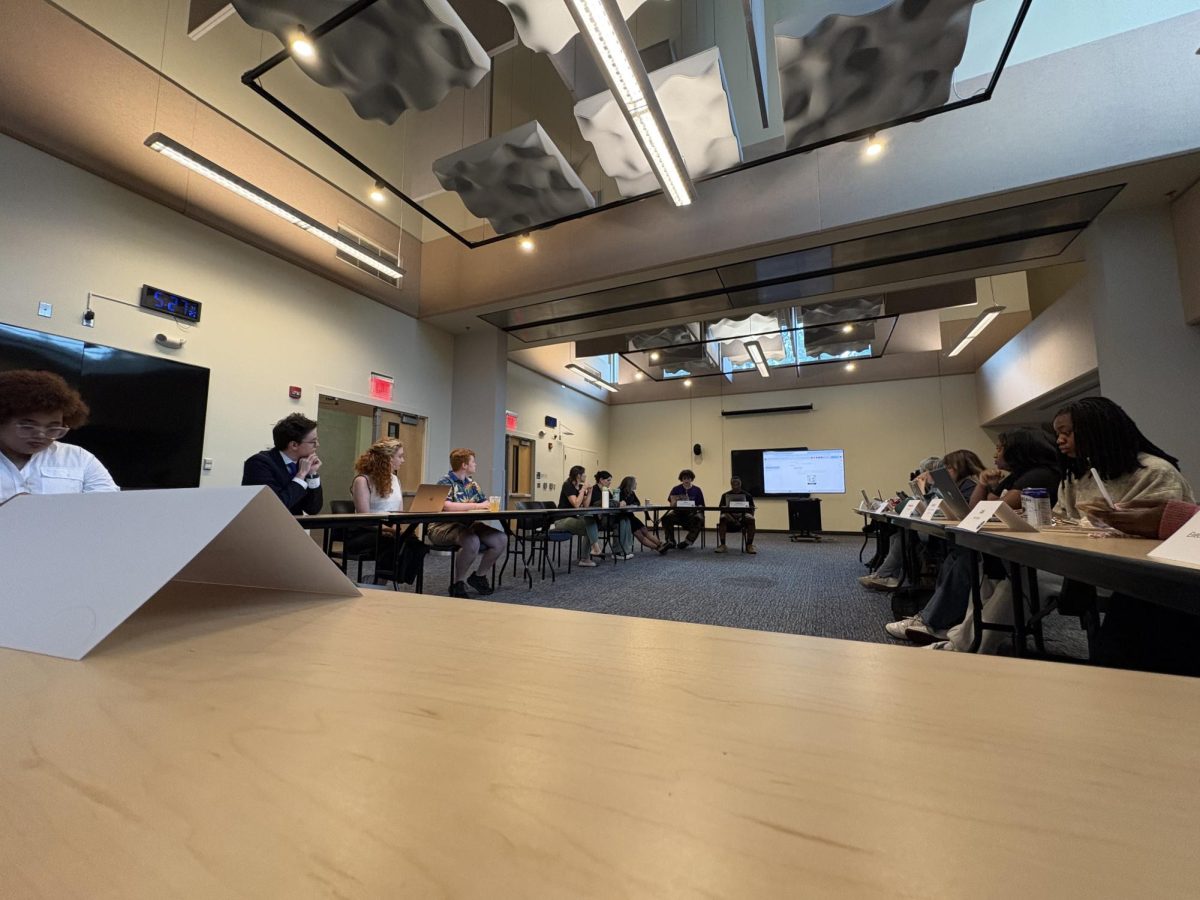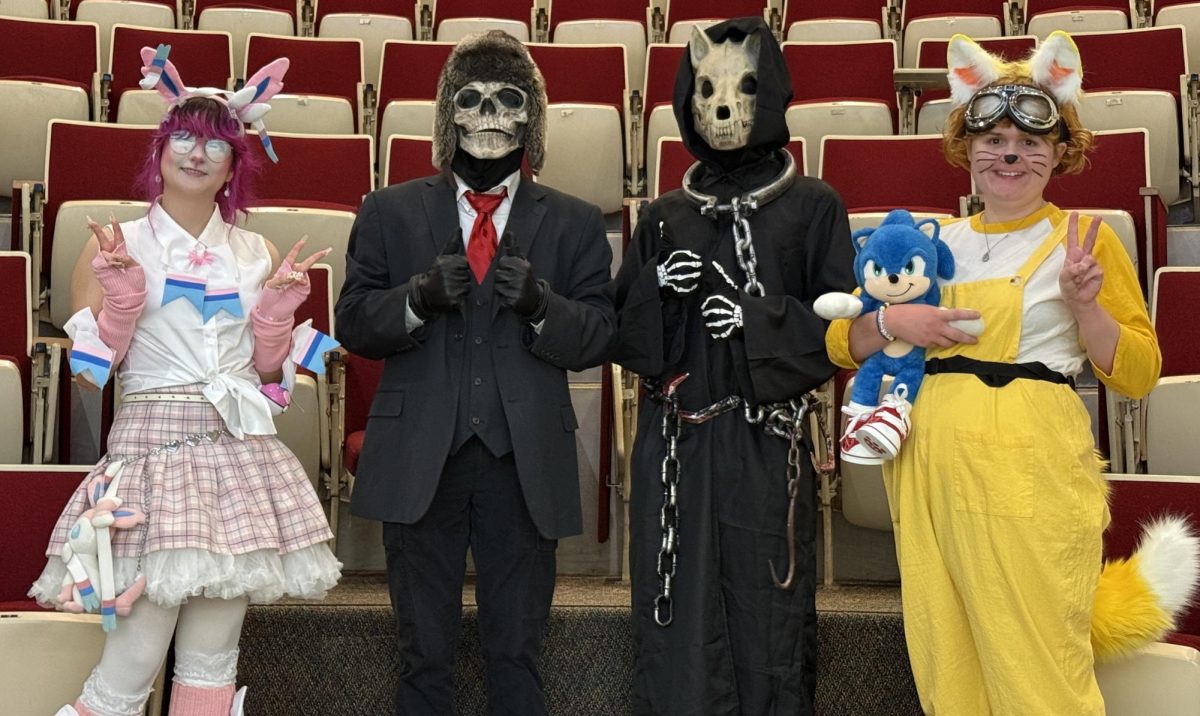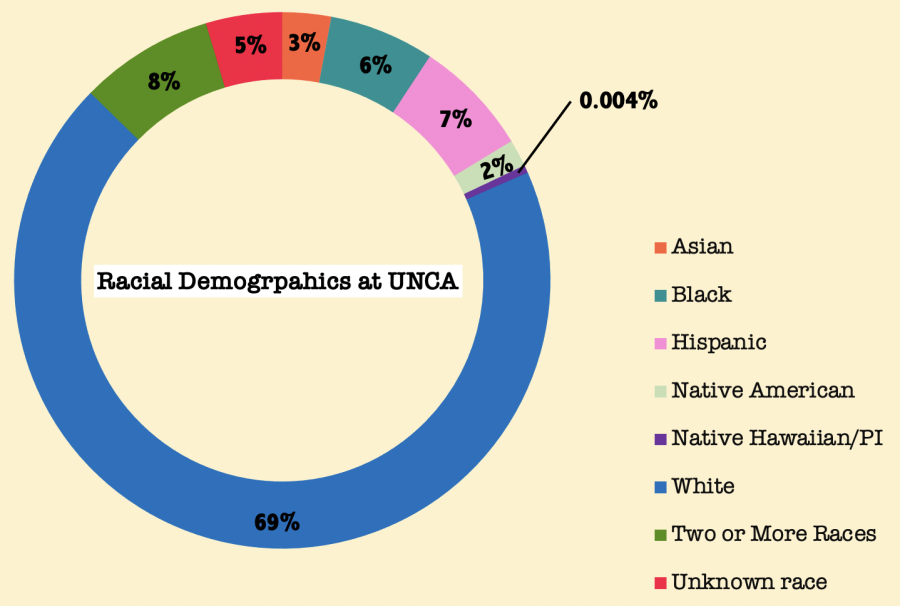Representation isn’t as important as you think it is
Demographic enrollment facts from UNC Ashevilles institutional facts web page.
April 26, 2022
I committed to UNC Asheville because of the importance it seemed to place on diversity and inclusion. When you’re 18 years old and grew up in a conservative military town, anything remotely diverse piques your interest.
It’s like that saying about the elephant being tied to a post for so long that it doesn’t understand it’s strong enough to knock the post over. Except, I’m convinced I’ll actually never be strong enough to knock the pole over.
I didn’t know how to differentiate actual activism and performative activism when I was younger. So, the rainbow flags and the words “inclusivity” and “diversity” hit the mark for me. I saw Black students walking around on campus, not realizing most of them were athletes. I was living in Twitterland, where everyone agreed with what I said and I didn’t have a grasp on the concept of performative activism.
As I stated previously, I grew up in a conservative military town. This meant I had to deal with blatantly racist kids, who got it from their parents, who got it from their parents, who got it from their parents. I had to cope with kids throwing slurs at me and outright telling me they thought Black girls were ugly. So, when I left that environment, I thought the pinnacle of white allyship was telling me my hair was cute and not saying the n-word even if it was in a song.
I quickly realized I should expect more from my white peers. The amount of emotional turmoil I had to go through when classes started was not in the brochures.
The language UNCA uses in their promotional material is vague, yet strategic. Including words like “diverse” and “inclusive” making the school seem like a leftist safe haven where no one is homophobic or racist.
On UNCA’s “About” web page, the first thing you see before you even get to words, is a picture of the front of Ramsey Library. If you don’t already know, UNCA has decided it’s a good idea to hang a Black Lives Matter flag, an inclusive pride flag and a land acknowledgment flag on the front of the school library. This imagery can easily pique the interest of young BIPOC students who are thinking about committing to UNCA.
There’s nothing wrong with displays of solidarity with marginalized communities, but what is the school actually doing to support the marginalized students who are suffering due to the sheer amount of ignorance, prejudice and outright racism present on campus?
UNCA’s Diversity and Inclusion webpage states, “Our commitment leads us to envision a future where all UNC Asheville students, faculty and staff know they belong regardless of their race and ethnicity, age, religion, disability, socioeconomic status, gender expression, gender and sexual identity, national origin, culture and ideological beliefs.”
The language in this statement can easily draw in a young adult who is seeking solace from a close-minded town, family or friend group. That was me.
I came here in hopes of having friends of all different races and ethnicities who accepted me and respected my culture, but I was sorely misled.
I was thrown into a sea of privileged, ignorant white kids who refuse to think outside of their own perspective. Granted, they weren’t calling me slurs, but I still had a multitude of racially insensitive interactions with my white peers during my first semester at UNCA.
No one told me it was going to be like this. Every time I left my dorm to go sit in a classroom just to be the only Black person there, I felt a little more alone. I honestly think I would have transferred to a different school if it wasn’t for SANKOFA.
“The Sankofa LLC is a residential community for first-year students of color and others interested in racial justice, cross-cultural collaboration and intercultural exchange,” according to the Office of Multicultural Affairs webpage.
I joined the program because I knew I would feel most comfortable being myself in a shared living space if the people I lived with came from the same culture as me.
It was important for me to feel like I could be myself without having to constantly think about whether or not my roommates were racist.
Once I left my dorm, I would find myself lost again, listening to some white kid who wants to be a rapper try to justify disrespecting sacred land for the sake of the “greater good.”
Stuff like that took a toll on me.
I don’t want that to be a reality for future students.
No one should feel alone at the school they pay to go to, especially when they were told the community was “inclusive” and “accepting.”
Just because an institution uses buzzwords that align with someone’s personal or political beliefs doesn’t mean they actually care.
I know what I’m saying might seem like common knowledge, but that doesn’t cross your mind when you’re 17 years old and you just want to stop hearing non-black people say the n-word.
It should be the institution’s responsibility to accurately represent the community demographics in their promotional material.
If you pick up any promotional material for UNCA, you will most likely see at least one person of color in every photo, which is not indicative of how the campus actually looks in real life.
UNCA’s student population is 73% white. The BIPOC population on campus is only 19.6%.
If BIPOC students only make up roughly 20% of the student population, how can there be a student of color in each piece of promotional media that is being pushed out to the masses?
This type of promotional tactic inadvertently misrepresents the student experience in an effort to maintain the guise of “inclusivity.”
Diversity and inclusion are important, but only when done correctly.
There is ignorance and racism running rampant on this campus and the university should devise ways to meaningfully create a safe environment for their students of color to thrive as minorities.
Seeing pictures of people that look like us (sometimes the pictures are of us) being pushed out to young, unsuspecting kids doesn’t change the fact that the campus culture is broken–and it needs to be addressed.
I’m not saying there shouldn’t be any students of color in the university’s promotional material, but their voices should be uplifted and used to educate incoming students about their experiences, especially if UNCA plans on making a dime using their faces.


















